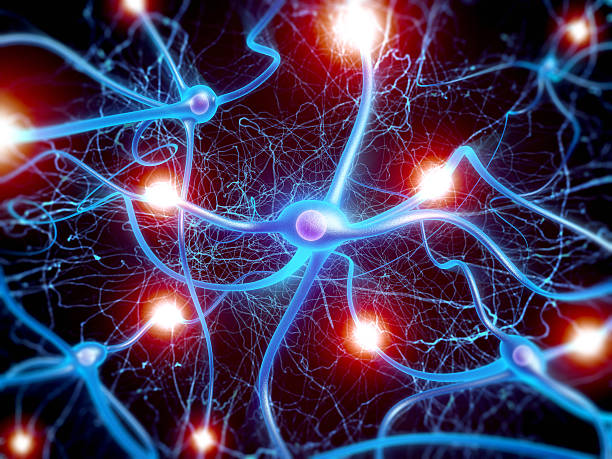What is Disaster Mental Health?
Disaster mental health refers to mental health services for victims, first responders, and medical personnel who experience disaster. Disaster can include a wide variety of sudden, catastrophic events that cause loss of life, such as an earthquake, a terrorist attack, or even a global pandemic.
What Conditions Are Associated With Disaster Mental Health?
Traumatic experiences during disaster can produce a variety of mental health conditions that last long after danger ends. Some of these may be related to neurological changes produced by long periods of “fight or flight.”
One of the most prominent conditions associated with disaster mental health is PTSD (Post-Traumatic Stress Disorder.) Once thought common only in military conflict, it is now understood PTSD can come from any intense experience of danger that provokes feelings of helplessness.

PTSD can have symptoms including flashbacks, memory loss (especially in relation to the traumatic event), anxiety, depression, difficulty sleeping, nightmares, and angry outbursts. The vast majority of PTSD sufferers are nonviolent and pose no threat to others.
Anxiety and depression are typical complications from any disaster. Both adults and children may feel guilty, believing they “should have done more.” Emotional flashbacks in which the sufferer re-experiences negative emotions without “seeing” or “hearing” the event, are common.
Disaster Mental Health Recovery and Lifestyle Changes
Disaster mental health treatment often includes a combination of medication and therapy. Medication focuses on reducing symptoms of anxiety and depression. Therapy can be in a group or one-on-one setting. Its primary goal is to help a sufferer process trauma.
One of the biggest challenges in disaster mental health care is the difficulty sufferers face verbalizing their experiences. Processing the emotions that come from trauma help reduce their effect on a person’s life. Novel approaches such as art therapy help many individuals express trauma in a way that helps. Techniques like journaling may also be used.
Disaster mental health patients need to identify psychological triggers in their environment. These triggers can cause them to re-experience the emotions or sensations of a past trauma. At first, recognizing and avoiding such triggers is advisable. With professional help, it’s possible to overcome the negative associations of triggers in a controlled environment.
Disaster Mental Health Research

Disaster mental health has been a prominent concern in psychology for decades. As researchers have uncovered effects of trauma on the brain, it has become clear profound neurological changes can occur during disaster even if one is not physically harmed.
Disaster mental health research focuses on two main areas: Reduction and treatment. Reduction aims to equip at-risk populations, like police and EMTs, with coping strategies to manage trauma. Treatment focuses on the neurobiology of trauma, creating better clinical resources for disaster mental health.
Why is Further Disaster Mental Health Research Necessary?
Millions of people all around the world are affected by mental health issues arising from disaster. The lessons of disaster mental health apply to everything from the COVID-19 outbreak to individual experiences of sexual assault or other criminal violence. With that in mind, all disaster mental health research has potential to help a broad spectrum of the population.
Disaster Mental Health Clinical Trials
This list contains all disaster mental health clinical trials on record at ClinicalTrials.gov. To feature a clinical trial on our site, contact us.
- Efficacy and Mechanisms of Virtual Reality Treatment of Phantom Leg Pain.Home-Based Treatmenton June 30, 2025 at 4:00 am
Conditions: Phantom Pain Following Amputation of Lower Limb; Amputation Interventions: Behavioral: Actiive Virtual Reality Treatment Sponsors: Albert Einstein Healthcare Network; University of Pennsylvania Recruiting
- Self-care Behaviors of Type 2 Diabetes Mellitus Patientson June 29, 2025 at 4:00 am
Conditions: Type 2 Diabetes Sponsors: University of Milano Bicocca; IRCCS Policlinico S. Donato Recruiting
- A Study of Oral Atogepant Tablets to Assess Adverse Events and Change in Disease Activity To Prevent Migraine in Participants Aged 12 to 17 Yearson June 29, 2025 at 4:00 am
Conditions: Chronic Migraine Interventions: Drug: Atogepant; Drug: Placebo for Atogepant Sponsors: AbbVie Recruiting
- Pediatric Patients With Metabolic or Other Genetic Disorderson June 29, 2025 at 4:00 am
Conditions: Genetic Disorder; Asperger Disorder; Autism Spectrum Disorder; Fragile X Syndrome; Developmental Delay Sponsors: Eunice Kennedy Shriver National Institute of Child Health and Human Development (NICHD) Recruiting
- Screening for Social Determinants of Health (SDOH) and Cognitive Function in Individuals With History of Strokeon June 29, 2025 at 4:00 am
Conditions: Stroke; Brain Disease; Vascular Diseases; Cerebrovascular Disorder Sponsors: National Institute of Neurological Disorders and Stroke (NINDS) Recruiting
- Psychosomatic, Physical Activity or Both for Post-covid19 Syndromon June 29, 2025 at 4:00 am
Conditions: Post-COVID-19 Syndrome Interventions: Behavioral: Exercise Therapy; Behavioral: Psychotherapy Sponsors: Hannover Medical School; Health Insurance Audi BKK; occupational health service Volkswagen AG; Helmholtz Centre for Infection Research Recruiting
- Rehabilitation Outcomes Studyon June 29, 2025 at 4:00 am
Conditions: Cancer; Malignant Tumor Interventions: Other: Rehabilitation-based intervention Sponsors: UNC Lineberger Comprehensive Cancer Center Recruiting
- TOTEM RRMS : TestOsterone TreatmEnt on Neuroprotection and Myelin Repair in Relapsing Remitting Multiple Sclerosison June 29, 2025 at 4:00 am
Conditions: Multiple Sclerosis, Relapsing-Remitting Interventions: Drug: Nebido® Testosterone Undecanoate 1000 Mg/4 mL Solution for Injection; Drug: Placebo 4 mL Solution for Injection; Procedure: MRI; Behavioral: Assessment of impact of MS on cognition; quality of life; fatigue; anxiety/depression and work and activities; Behavioral: Assessment of disability Sponsors: University Hospital, Strasbourg, France; Bayer; Fédération Hospitalo-Universitaire NEUROGENYCS; Grünenthal GmbH Recruiting
- Characterization of Nociception Phenotype in Individuals With Intellectual Disabilityon June 29, 2025 at 4:00 am
Conditions: Intellectual Disability Interventions: Device: TSA2 Thermosensory Stimulator Sponsors: National Institutes of Health Clinical Center (CC) Recruiting
- AI-Based Fidelity Feedback to Enhance CBTon June 29, 2025 at 4:00 am
Conditions: Cognitive Behavioral Therapy; Therapy Interventions: Other: LyssnCBT Sponsors: University of Pennsylvania; Lyssn.io, Inc.; National Institute of Mental Health (NIMH) Recruiting
- NBI-1065845-MDD3026: Study to Assess the Efficacy and Safety of NBI-1065845 as an Adjunctive Treatment in Participants With Major Depressive Disorder (MDD)on June 29, 2025 at 4:00 am
Conditions: Major Depressive Disorder Interventions: Drug: NBI-1065845; Drug: Placebo Sponsors: Neurocrine Biosciences Recruiting
- Efficacy and Safety of Gemlapodect (NOE-105) in Adults and Adolescents With Tourette Syndromeon June 27, 2025 at 4:00 am
Conditions: Tourette Syndrome Interventions: Drug: Gemlapodect; Drug: Placebo Sponsors: Noema Pharma AG Recruiting
Conclusion
With more people experiencing disaster, stigma around seeking disaster mental health treatment is beginning to fade. Disaster mental health clinical resources will depend on active clinical trials that uncover further information about the brain’s trauma response. Further medical research may help millions of people reclaim their sense of stability.
Sources
- https://www.phe.gov/Preparedness/planning/abc/Pages/disaster-behavioral.aspx
- https://www.medicalnewstoday.com/articles/325578
- https://www.rainn.org/articles/flashbacks
- https://emergency.cdc.gov/coping/index.asp
- https://www.mhanational.org/coping-disaster
- https://www.webmd.com/mental-health/what-are-treatments-for-posttraumatic-stress-disorder
- https://www.ptsd.va.gov/understand_tx/tx_basics.asp